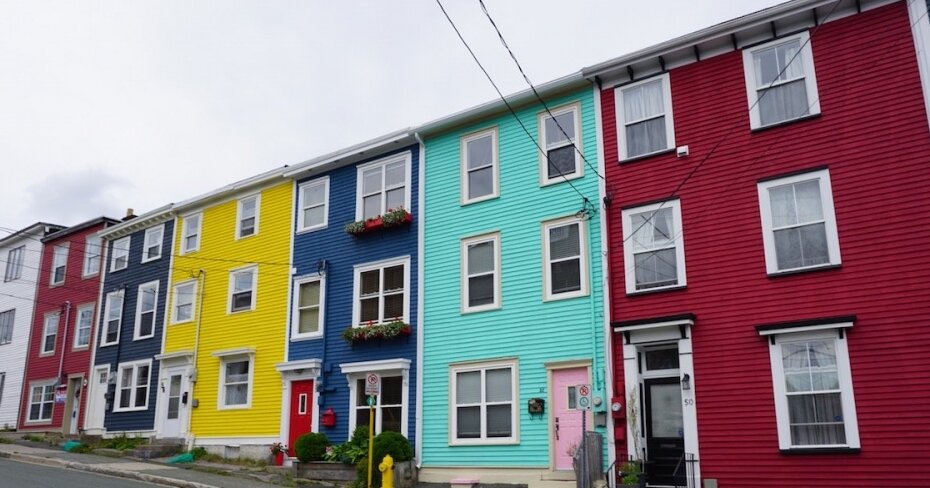Where is the Canadian housing market heading in 2017? A roundup of what the experts say
By: John Shmuel on June 12, 2017
Canada’s housing market is at a fork in the road.
Anyone looking to buy or sell a home right now is getting hit with a confusing array of messaging. Depending on who you listen to, prices are either going to continue to have healthy gains over the next few years, or are at risk of implosion.
To simplify the message, we rounded up what the experts are currently forecasting. Below, we list some of the more common scenarios they’re predicting for Canada’s housing market in 2017.
The big gains are over
This one has been made before, and the Canadian housing market has defied them all.
But we’ve also been seeing prices run up for years in markets such as Vancouver and Toronto, and prices can only surge for so long before squeezing out buyers. RBC Capital Markets is forecasting that annual home price gains in Canada are going to cool from 10.7% in 2016 to 5% this year.
But the gains will really slow in 2018, when RBC forecasts that the Bank of Canada will raise interest rates — thereby raising mortgage payments. RBC predicts that Canadian homes prices will record a rise of just 1% in 2018, meaning if you count inflation, the average home value will actually decline.
Risk of a crash remains
There are no shortage of bears that say Canada’s housing market is in for a hard landing.
Perhaps one of the most bearish commentators is Goldman Sachs, which declared last month that Canada has a 30% chance of a housing bust in the next two years (Goldman defines a bust as an inflation-adjusted decline in prices of five per cent or more).
The investment bank blamed a glut of new homes that have been built in the past few years — especially in oil producing regions such as Alberta and Saskatchewan, which continue to feel economic pressure from low oil prices.
There are some who are calling for prices to drop even further. David Madani, economist at Capital Economics, says that home prices could drop as much as 40% in the next few years in Toronto and Vancouver.
Interest rates to stay low
While some are warning about the risk of a housing bust, others point out that it’ll be hard for a crash to happen while interest rates remain low.
And there aren’t many calling for rates to go much higher anytime soon.
Canada Mortgage and Housing Corp. chief economist Bob Dugan has said that he expects the cost of borrowing money in Canada to remain fairly low for some time. Dugan says that while interest rates will likely rise this year or next, any increases will be gradual.
Visit our comparison page to see which of Canada's banks are offering the best mortgage rates right now.
Compare ratesThe last time house prices crashed in Toronto was the 1980s, when rapid price gains were followed by the Bank of Canada raising its benchmark interest rate into the double-digits. By comparison, today’s rate sits at a modest 0.5%.
In fact, mortgage rates right now continue to remain around record lows — meaning there’s a low floor for rates to rise from over the next few years.
Housing a regional story
Not all provinces will move in tandem this year.
RBC highlights there are some risks to the downside in B.C., where housing prices recently started rebounding after a period of cooling last year.
“We see clouds forming over B.C. housing market again next year when we anticipate interest rates beginning to rise in Canada,” the bank says.
In Ontario, RBC expects housing cooling to continue — and be “orderly”, not a crash as some are predicting.
“Housing risks will diminish as market expectations transition from over-exuberance to rationality,” the report says.
Tune out the noise
Opinions on the housing market in Canada have always been divisive.
Bearish commentators have warned of a housing bust in Canada for the better part of a decade — even as prices have rose steadily rose in that time. Meanwhile, during the 1980s, a housing bust in Canada was preceded by experts assuring Canadians there was nothing to be concerned about.
If you’re in the market for a home, stick to sound buying strategies — don’t over-leverage yourself, save up an emergency fund before you take on a mortgage and don’t get caught up in market exuberance. And if you’re worried about a crash, buy a home you expect to live in for a long time, not flip for profit in a year or two.
Following those rules will keep you from having regrets however this market plays out.


.jpg?itok=tIiHyjyb)